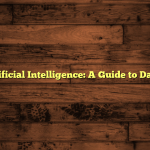The Comprehensive Guide to Data Protection Officers
Table of Contents:
- What Is a Data Protection Officer?
- Core Responsibilities of a Data Protection Officer
- Ensuring Compliance with Privacy Laws
- Managing Data Subject Rights
- Handling Data Breaches
- Advising on Privacy Impact Assessments
- Training Staff & Promoting Awareness
- Drafting & Reviewing Policies
- Acting as Liaison With Regulators & External Parties
- Additional Considerations: Independence & Reporting Lines
- Summary Table: Key Duties vs Purpose
- FAQ
The Comprehensive Guide to Data Protection Officers
Is your organization truly ready to meet the increasing demands of data privacy? A Data Protection Officer (DPO) is a valuable asset, helping organizations navigate the complicated network of data privacy protection laws. A DPO’s work concentrates on guaranteeing that personal data is handled responsibly, safely, as well as according to applicable regulations, particularly those like the European Union’s General Data Protection Regulation (GDPR). Let’s explore exactly what a DPO does.
What Is a Data Protection Officer?
A DPO is the protector of personal data within a company. What they do is oversee how data is gathered, kept secure, used carefully, not to mention shared appropriately. This guarantees that everything is in line with legal standards such as GDPR or other privacy regulations. While the law doesn’t mandate that every company must have one, for example, GDPR requires that only those involved in the large-scale processing of sensitive information or systematic monitoring must appoint a DPO, many businesses opt to have one. It is a part of good governance.
Core Responsibilities of a Data Protection Officer
A DPO’s duties are diverse. A few of their important responsibilities include:
1. Ensuring Compliance with Privacy Laws
A DPO’s job is to make sure the company complies with data protection laws. This is what that involves:
- They keep detailed records of how personal data flows through the organization. This includes what data is collected, the purpose of its collection, as well as its destination.
- A DPO monitors the activities that relate to the processing of personal information. This is to identify any risks or security failures.
- They advise management on what the legal obligations are. A DPO also assists with what the best actions are for protecting individual privacy rights.
- They serve as the main point of contact when regulatory agencies visit or when audits take place.
2. Managing Data Subject Rights
Individuals who have their data held by an organization have certain rights. These rights are granted under GDPR and other similar regulations. For instance:
- Individuals hold the right to see their own personal information.
- They possess the right to ask for corrections if something is incorrect.
- They have a right to the deletion of their data under specific conditions.
The DPO organizes responses when people want to use these rights. They do this by handling requests without delays while making sure that deadlines are met.
3. Handling Data Breaches
Data breaches cause damage. It can be both financial damage as well as damage to the company’s reputation. The DPO’s job here is to do the following:
- Set up procedures to identify breaches quickly.
- Report big breaches within a short period. For example, within 72 hours under GDPR.
- Work with supervisory authorities during investigations.
By managing the response to a breach well, they help to decrease the damage. This is from incidents that involve unauthorized access to personal information or the loss of it.
4. Advising on Privacy Impact Assessments
When companies are planning new projects that heavily rely on personal data, they must check the possible privacy risks up front. This is done by performing what is called a Data Protection Impact Assessment (DPIA). In this process, the DPO does the following:
- Finds possible threats to privacy.
- Suggests how to decrease the danger using technical or organizational steps.
This forward-thinking strategy assists with embedding “privacy-by-design” into business operations from the beginning. This removes the need to respond after problems arise.
5. Training Staff & Promoting Awareness
Data protection goes further than policies. Everyone at the company must understand what their role is in protecting information. The DPO creates training programs that are customized for different departments. Therefore, employees understand how they should deal with sensitive information on a daily basis. This goes from HR workers handling employee records to marketing teams dealing with customer contact information. They also foster a culture where respecting privacy becomes a habit.
6. Drafting & Reviewing Policies
To keep matters straightforward within the company, not to mention to show liability outside of it, the DPO drafts policies that discuss topics such as:
- For how long various kinds of personal data should be kept before deletion. This is called “data retention policies.”
Also, they regularly check these documents because regulations develop over time. In addition, business demands change over time.
7. Acting as Liaison With Regulators & External Parties
When regulators investigate or inquire about how well your company protects people’s data, the DPO is your official contact. The same goes if there are complaints. In addition, if you share protected information outside of the company through agreements or partnerships that need special protections, the DPO checks these agreements carefully.
Additional Considerations: Independence & Reporting Lines
A DPO must work independently. They cannot be penalized for doing their job, also, they cannot take instructions on enforcement actions from management. Typically, they report at high levels so that the advice they give has weight.
Summary Table: Key Duties vs Purpose
| Responsibility | Purpose/Outcome |
| Compliance Monitoring | Ensure adherence across all processes |
| Record Keeping | Document lawful handling practices |
| Responding To DSARs | Uphold individual rights |
| Breach Management | Minimize impact from security incidents |
| DPIA Advisory | Embed risk mitigation early |
| Staff Training | Build awareness throughout workforce |
| Policy Development | Clarify rules internally |
| Regulator Liaison | Facilitate transparent communication |
In summary, a skilled Data Protection Officer acts as a supervisor as well as an advisor. They balance legal requirements with practical business needs. They cultivate trust between customers and employees through responsible stewardship of information. This work continues to evolve.
FAQ
What qualifications should a DPO have?
A DPO requires a good understanding of data protection law, industry practices, as well as business operations. Formal certifications or degrees in law, information security, or related subjects are advantageous. They should also possess excellent communication skills.
How much independence does a DPO need?
A DPO should have a high level of independence. They must report directly to senior management, get adequate resources, next to must not face consequences for performing their duties.
Can the same person be a DPO for multiple organizations?
Yes, but only if the person has the resources. They must be able to satisfy the demands of each role. This might be challenging.
Resources & References:
- https://www.gdprregister.eu/gdpr/what-is-a-dpo/
- https://www.dlapiperdataprotection.com/?t=data-protection-officers&c=US
- https://www.indeed.com/career-advice/finding-a-job/what-does-a-data-protection-officer-do
- https://www.privasee.io/post/data-protection-officer
- https://usercentrics.com/knowledge-hub/what-is-dpo-data-protection-officer/





